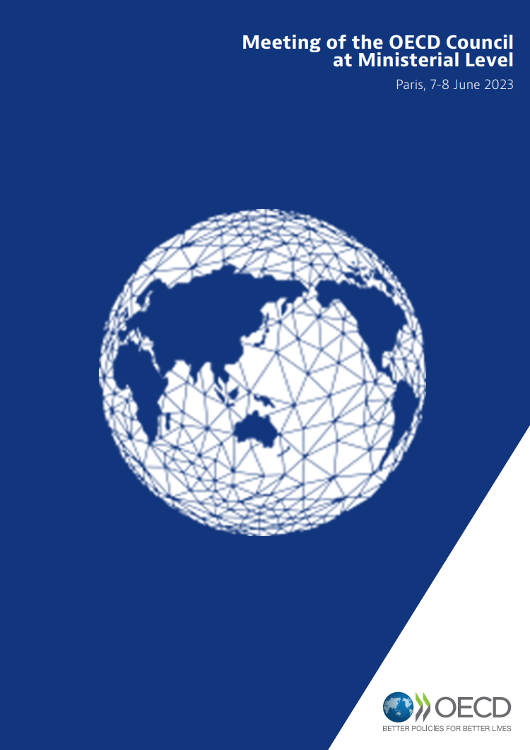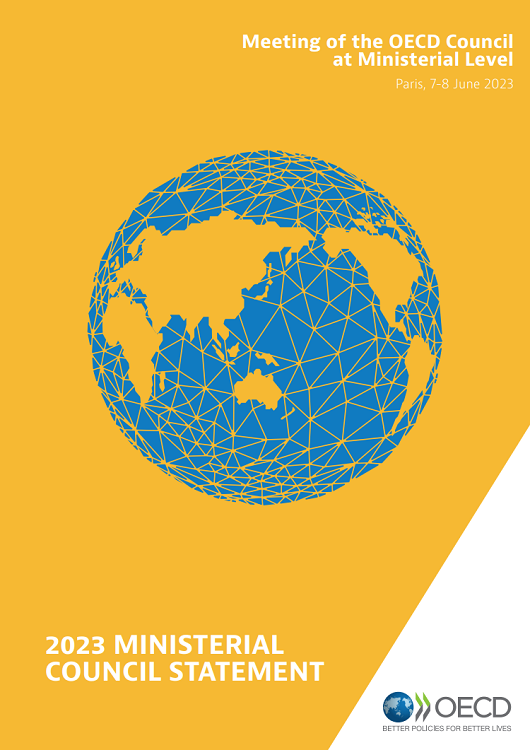Remarks by Mathias Cormann, Secretary-General, OECD
22 January 2024
Good morning,
Welcome to this OECD High-Level Policy Forum on “The Future of People-Centred Health Innovation”.
Thank you to our partners – the Commonwealth Fund, the Health Foundation and the Financial Times – for having joined forces with the OECD to organise this event.
Good health is central to our well-being.
It also matters when it comes to our productivity at work and hence is important for economic development and growth.
Effective and efficient health systems support people to lead long and fulfilling lives, enabling them to participate fully in our economies and societies.
They help manage pressures on health systems flowing from the combined effects of population ageing, unhealthy lifestyles and fiscal constraints.
And they use innovation to improve treatments and processes.
Since 2020, health systems have been under renewed financial pressure – due to the impact of the COVID-19 pandemic and the competing priorities for public funding in an environment of lower economic growth.
COVID-19 – a one in a one-hundred-year pandemic – brought with it unprecedented challenges.
It exposed structural weaknesses in health systems – including health worker shortages, insufficient health data linkages, and fragile supply chains for medical products.
At the same time, COVID-19 showed that health systems are capable of rapid transformation.
Teleconsultations rose markedly, health data use accelerated, task sharing among health professionals progressed and a vaccine for COVID-19 was developed in record time.
Health systems are operating in a tight fiscal space.
Excluding spending on COVID-19-related issues, spending on healthcare per person in OECD countries was lower in 2022 than before the pandemic.
The need for overall fiscal restraint in government spending will make it difficult to increase investment in health systems by enough to adequately strengthen its resilience.
We estimate that an extra 1.4% of GDP of targeted investment in health systems would be required annually, on average across the OECD, relative to the level of relevant expenditure in 2019.
Health innovations and efficiency savings will be important to enable this higher investment.
Population ageing, the digital transformation and climate change are transforming the landscape in which health systems operate.
Population ageing will drive up demand for health and long-term care – and potentially exacerbate worker shortages.
By 2050, 27% of the population will be aged 65 and over, in OECD countries on average.
Digitalisation is penetrating health systems more slowly than other sectors, related to inadequate health data infrastructure and concerns about patient privacy and trust.
For example, health systems continue to rely significantly on fax machines – with 75% of global fax traffic used for medical services.
Climate change is resulting in new health risks – deaths related to heat among people older than 65 are estimated to have increased by 68% since the early 2000s.
Health systems must play their part in the transition to net-zero greenhouse gas emissions – currently, they are among the highest-emitting sectors.
This Forum will help to tackle some of today’s key challenges for health policy.
It will identify new ways:
- To promote more people-centred health systems,
- And to leverage health innovation and new technologies.
First: on people-centred care, which must become a stronger focus of health system innovation and transformation.
We know surprisingly little about whether health systems are truly delivering what people need, even though OECD countries spend around 9% of their GDP on healthcare.
The new OECD Patient-Reported Indicator Surveys initiative – the so-called “PaRIS” – is changing this.
The PaRIS Surveys are delivering the first internationally comparable data reported by patients and providers.
They will help policy makers to identify strengths and weaknesses of health systems that matter most to people who receive and deliver care.
In-depth results from the PaRIS Surveys will be available later this year.
But preliminary results already give us valuable insights.
These suggest how health systems and healthcare can make a difference to people’s health.
People, who rate the quality of their primary care highly, feel healthier, even when living with multiple chronic conditions.
Our Patient-Reported Indicator Surveys highlight significant differences across countries.
For example, trust in the primary care provider, as reported by patients, varies between 35% and 90% across countries.
The PaRIS Surveys will also provide insights on promoting gender equality – through new data and by enabling analysis on gender gaps in health systems and health outcomes.
The second focus of this Forum will be on leveraging health innovation – to seize the opportunities offered by new tools and technologies, such as genomic medicine and artificial intelligence.
Thanks to breakthroughs in science and technology, some treatments can now be tailored to individual genetic profiles.
For example, use of genomic data is advancing the accuracy of diagnoses of certain diseases, and personalised gene therapies are already used to treat some breast, bowel, lung, skin, blood and bone marrow cancers.
Artificial intelligence can free up time for health professionals by automating and streamlining administrative tasks.
It can provide tailored insights based on personal health data and help patients to make informed decisions.
For example, for a person wearing a blood glucose monitor to manage their diabetes, artificial intelligence can suggest pro-active interventions, based on past patterns of behaviour and accumulated data.
Policy makers, developers and users will need to be mindful of and limit potential downsides and risks that can come with artificial intelligence and new technologies.
For example, biases have been found in skin cancer detection methods based on artificial intelligence, when these are mainly trained using images of White patients.
And socio-economic groups with lower levels of health literacy tend to have fewer of the skills needed to make the most of new health technologies.
Policies will have to be proactive to ensure that innovations improve the efficiency of health systems and deliver better outcomes of care for people right across society and who need it the most.
We need reliable frameworks to ensure trustworthy use of artificial intelligence in health.
We need effective education in health literacy and upskilling of the health workforce.
We need a stronger patient focus, that is, a stronger focus on people who receive healthcare.
And we need multilateral dialogue with governments and stakeholders from OECD and non-OECD countries.
Your conversations today will help to set the agenda for the next generation of health reforms and inform the discussions that Health Ministers will have tomorrow at their 2024 OECD Health Ministerial Meeting.
We are looking forward to your insights and contributions on how we can tackle the challenges facing health systems and maximise the potential to leverage health innovation and drive transformative change – to help to show the best way forward.
Thank you.

